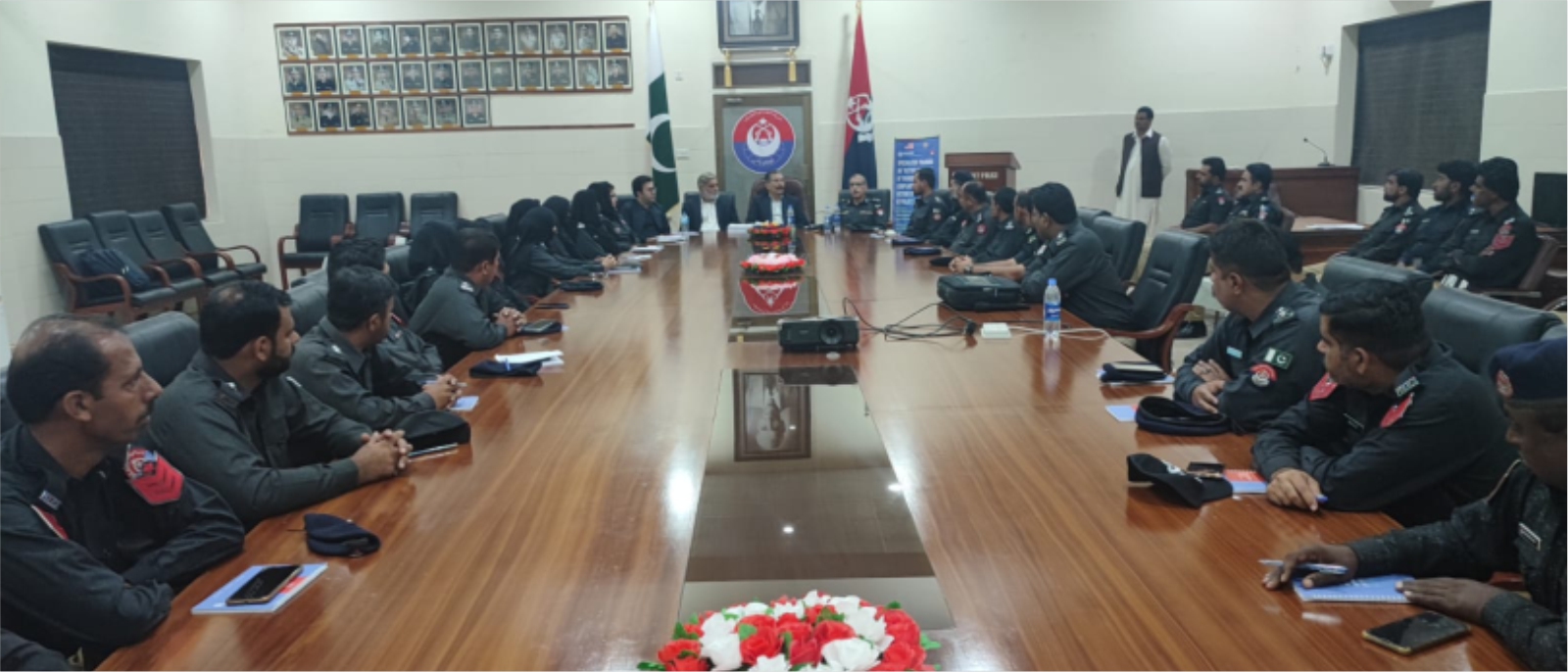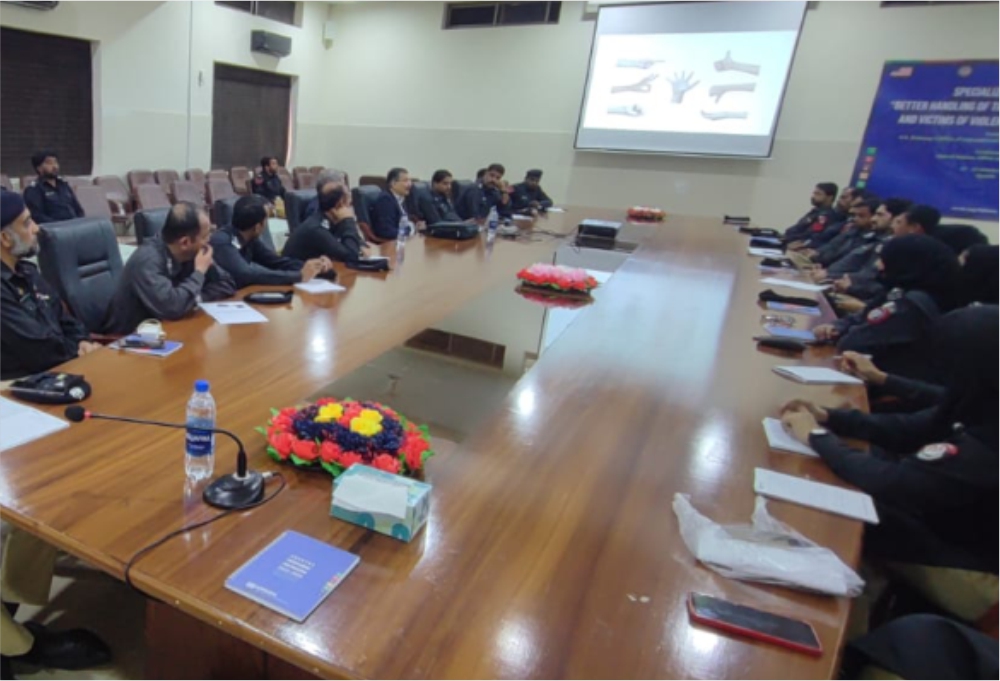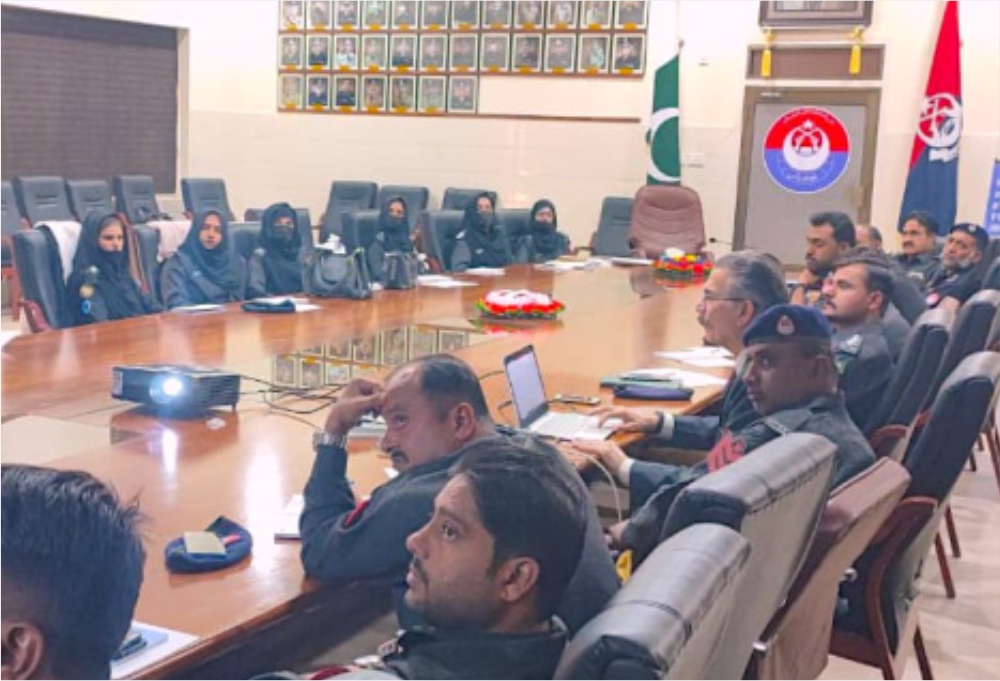
20 October 2023, Islamabad - In a groundbreaking effort to foster inclusivity and support for transgender individuals, a Specialized Training Program on Better Handling of Transgender Complainants and Victims of Violence at Police Stations has been introduced for law enforcement personnel in Balochistan. Funded by the US Embassy’s Office of International Narcotics and Law Enforcement (INL) and conducted by UNODC, this unique training program equips police officials with essential skills and knowledge to more effectively deal with transgender complainants and victims who turn to law enforcement for assistance.
Transgender individuals often confront discrimination, harassment, and violence, making them a particularly vulnerable group in society. When they experience crimes, including physical or sexual violence, it's vital that they are able to approach the police with trust and confidence. Nevertheless, handling of complainant and victims from the transgender community is a complex challenge for the law enforcement sector, requiring dedicated focus. Recognizing this, the subject training program were conducted from 10-12 October, 2023 and 17-19 October, 2023 in Balochistan and encompassed several critical areas to enhance the capabilities of police officials.
A cross-section of 48 police officials were trained in two batches (including 11 female) by UNODC-deployed expert trainers who delivered customized and practice-based modules that aimed at equipping the participants with knowledge and skills that ensure transgender individuals feel safe, respected, and heard when they report crimes or seek assistance.


Participants were engaged through role plays and interactive techniques to better grasp a nuanced understanding on how to approach and handle cases involving vulnerable communities, including transgenders. The inclusion of female police officers in the training is a crucial step to ensure enhanced gender sensitivity in the police force and given the cultural context, female officers can often relate better to the unique challenges faced by transgender individuals.
Proper understanding of the law is also crucial for ensuring justice for transgender complainants and victims. The training also supports police officials to handle cases involving transgender individuals within the scope of the law. Furthermore, the modules also emphasized upholding the rights of vulnerable communities given that human rights are universal, and all individuals, regardless of their gender identity must be respected and protected. Correct filing of complaints and First Information Reports (FIR) is essential and therefore the participants were also sensitized on procedures to ensure that transgender complainants' cases are documented accurately.
The participants acknowledged that the training was highly useful and engaging. Humayou Khan, Inspector, Balochistan Police stated, “The training was very useful in improving my knowledge on how to handle cases involving women, children, especially transgenders, providing them enabling space to ensure justice is served.” Maria Mir Ahmed Baloch, ASI, District Chagez, Balochistan mentioned, “I thank INL and UNODC for letting us participate in this unique training that helped me to understand behaviours and norms while dealing with transgenders. I will definitely transfer this learning to my colleagues.”
In conclusion, by providing law enforcement officials with the knowledge and tools to interact respectfully and effectively with vulnerable people, as well as transgender individuals through reporting and documentation of crimes, this initiative not only improves the lives of those seeking justice but also builds a stronger, more inclusive society where every citizen's rights and safety are protected in Balochistan.
